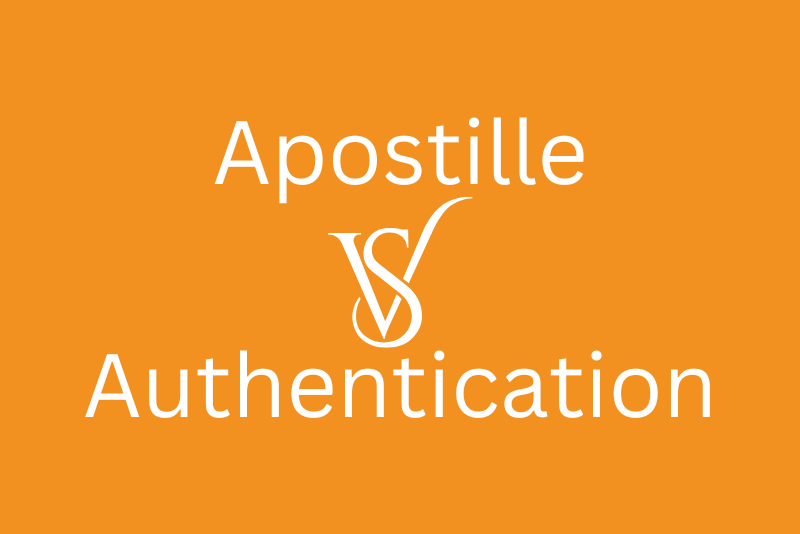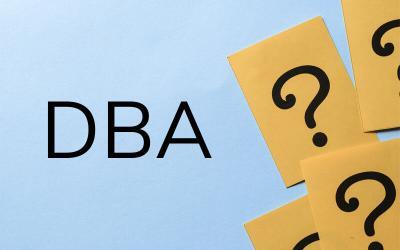Apostille and authentication certificates serve the similar purpose of authenticating official government-issued documents (such as a business’s Articles of Incorporation or Articles of Organization). They certify the origin of documents and the authenticity of the signatures or seals of the signing authorities so that those documents can be legally recognized in foreign countries. A business entity typically needs to seek an apostille or authentication when it wants to engage in international trade—e.g., expand its operations, enter into joint ventures with companies abroad, participate in foreign legal proceedings, or otherwise transact business internationally.
In the United States, a U.S. federal court clerk or the U.S. Department of State Office of Authentications issues apostille and authentication certificates to authenticate federal documents. The Secretary of State office or other designated authority in a jurisdiction issues authentication certificates for state documents. In other countries, individuals and businesses must request apostille or authentication certificates through the nation’s designated authorities.
It’s important to note that an apostille or authentication certificate certifies only the authenticity of the official source’s signature and seal; it does not validate that the contents of a document are valid or accurate.
What Is an Apostille?
Countries that are members of the 1961 Apostille Convention (a convention within the Hague Conference on Private International Law) have adopted a standardized and streamlined approval process for recognizing documents from other member countries. The United States is one of more than 120 nations participating in the Apostille Convention. Apostille certificates authenticate the signature and seal on federal documents, making the documents valid in other countries that have joined the Convention. Apostilling documents eliminates red tape and saves time compared to legalizing documents through authentication.
U.S. companies that transact business in any foreign company also participating in the Apostille Convention use apostille certificates to authenticate federal documents, such as patent or trademark certificates and U.S. tax residency forms. The Secretary of State office or other designated authority in the state where a business is formed issues apostilles for public state documents, such as Articles of Organization and Articles of Incorporation. A business entity may apply for an apostille certificate when filing its formation documents or at any time during its existence when it intends to do business in a foreign nation.
Apostille for Federal Documents
According to the U.S. Department of State’s Bureau of Consular Affairs:
- If a federal document is signed by one of the following officials, an apostille or authentication certificate is required:
- U.S. federal official
- U.S. consular officer
- Foreign consul registered with the U.S. Department of State’s Office of Protocol
- Military notary or judge advocate
- The document must be an original or certified copy with original seals and signatures and a date of issuance
- If the country requires the document to be translated from English into another language, get assistance from a professional translator and have the translated document notarized (do NOT notarize the original document).
- Form DS-4194, Request for Authentications Service, is used for apostille and authentication requests. Filers should pay the associated processing fees when submitting the form.
Apostille for State Documents
Public documents issued by a U.S. state, the District of Columbia, or other U.S. jurisdiction may be legalized with an apostille from the state’s Secretary of State office or other designated authority in the jurisdiction.
What Is Authentication?
Authentication is required for certifying public documents in countries that do not participate in the Apostille Convention. Unlike the standardized apostille certification process, nations’ authentication requirements can vary from country to country. Obtaining authentication to legalize documents is a more time-intensive and complex process than getting an apostille certificate.
Do You Need an Apostille or Authentication?
To have business documents legally recognized in countries that participate in the Apostille Convention, you need to get an apostille certificate from the U.S. Department of State for documents issued by the U.S. federal government or from your state of registration’s Secretary of State office (or other appropriate state authority) for state-issued documents.
Similarly, businesses formed in other countries must obtain an apostille certificate to do business in the United States. The U.S., along with over 120 other countries around the world, is a member of the Apostille Convention.
You will need an authentication certificate in countries that do not participate in the Apostille Convention. Different countries have different rules and requirements.
Following the proper process for obtaining an apostille or authentication certificate is crucial. Missing any steps can result in the delay or rejection of a business’s request to legally operate in another country. You must make sure to request the correct certification! Your documents will be rejected and not considered legal in the foreign nation if you present an apostille certificate in a country that is not a member of the Apostille Convention or an authentication certificate to a country that is a member of the Apostille Convention.
Examples of scenarios requiring a U.S. business entity to obtain an apostille or authentication certificates:
- A manufacturing company formed in California is opening a plant in Germany (Requires apostille because Germany is an Apostille Convention member)
- A tech startup in Ohio wants to open a corporate bank account in Singapore (Requires apostille because Singapore is an Apostille Convention member)
- A perfume company in Florida that is selling its products in France wants to protect its trademarked name in that country (Requires apostille because France is an Apostille Convention member)
- An automobile parts manufacturer in Michigan wants to dispute legal claims against them in Canada (Requires apostille because Canada is an Apostille Convention member)
- A home decor retail store in Texas wants to import hand-crafted goods from Vietnam (Requires authentication because Vietnam is not an Apostille Convention member)
- A birding and nature guide based in Nevada wishes to conduct tours in Tanzania and must enter into agreements with lodging providers and others in the tourism industry in that country. (Requires authentication because Tanzania is not an Apostille Convention member)
Let CorpNet Handle Your Apostille Needs!
Ready to take your U.S. company abroad? We assist U.S. businesses with obtaining apostille certification of their documents from Secretary of State offices in all 50 states.





